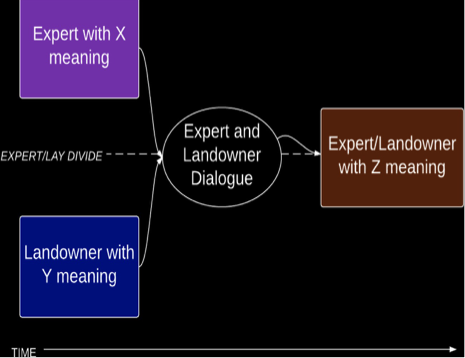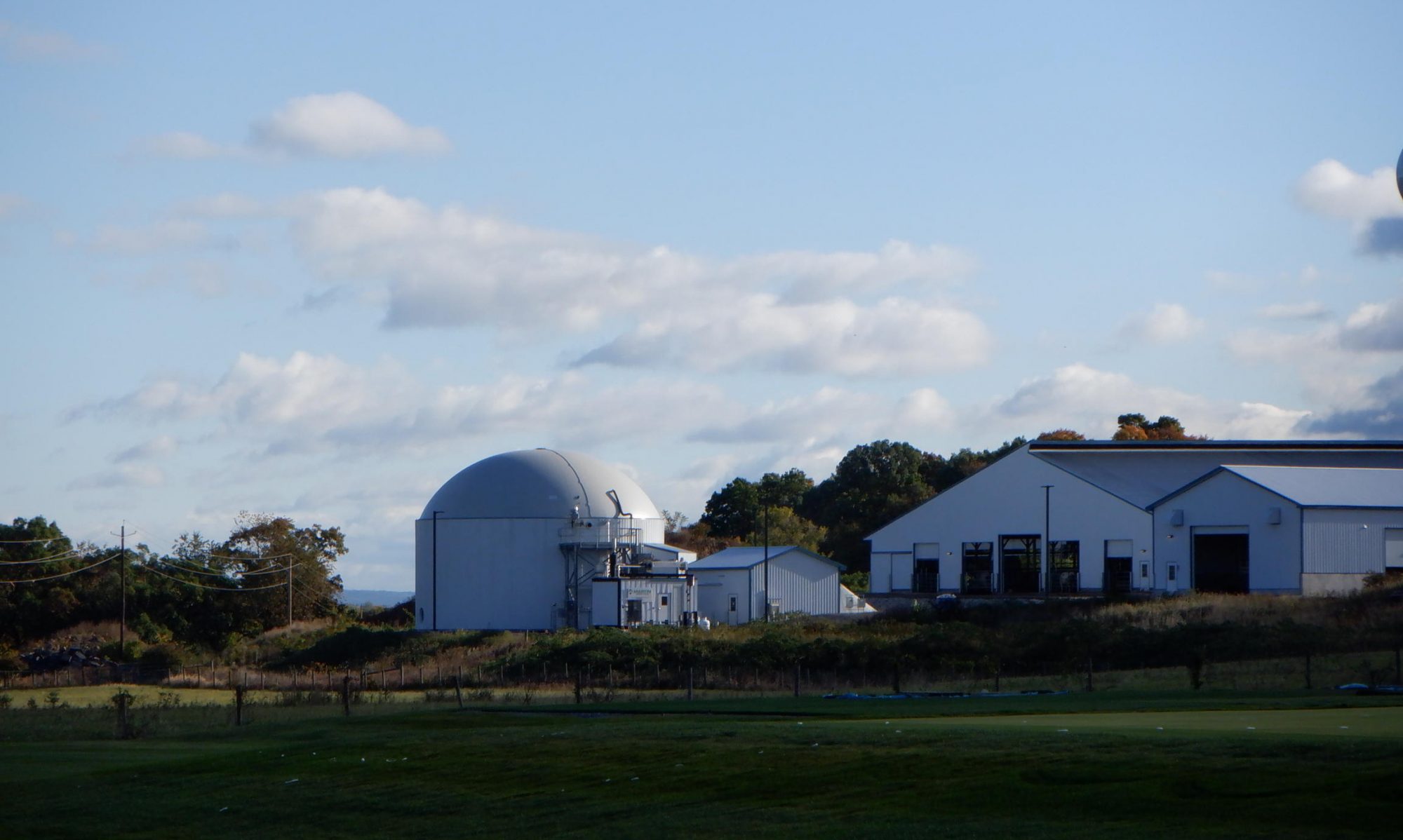By including landowners in conversations about bioenergy crops such as switchgrass, willow and Miscanthus, experts are more likely to promote adoption than by just providing new information.
Table of Contents
- Introduction
- Research Purpose
- Research Activities
- What We Have Learned
- Why This is Important
- For More Information
- Contributors to this Summary
Introduction
Current efforts to engage landowners on the topic of dedicated energy crops may fall short due to a crucial assumption made by scientific and policy experts about what causes changes to human behavior. By providing opportunities for dialogue between groups with different viewpoints, however, those experts may be able to encourage support and adoption of crops such as switchgrass, Miscanthus, and shrub willow.
Research Purpose
NEWBio researchers Weston Eaton, Morey Burnham, Clare Hinrichs, and Theresa Selfa wanted to know if the way bioenergy experts think about landowner behavior might affect their outreach to those landowners, and how both groups could better understand each other’s viewpoints on bioenergy crops and their adoption.
Research Activities
The researchers interviewed plant scientists, policy specialists, government employees, and other bioenergy experts in the Northeast United States and analyzed the results. They wanted to learn how these experts think about or conceptualize landowner behavior and how that perspective influences the way these experts design and practice landowner engagement and outreach.
What We Have Learned
The bioenergy experts in the study viewed landowners as unaware of or misinformed about dedicated energy crops, a perspective that is termed the “knowledge deficit” model in the literature on public engagement. According to this model, it is assumed that landowners’ misunderstanding of, or lack of awareness for bioenergy crops is a major hurdle to the successful development of a bioenergy economy in the Northeast and one that can be overcome through the provision of facts.
One respondent in the study, for example, said that landowners “tend to have very emotional, knee-jerk, non-science based reactions…”. Another responded, “[Landowners] have no real sense of…whether or not wood or grass is better than oil or natural gas…I think people just make assumptions and don’t really understand truly what the differences are.”
In adopting this perspective, bioenergy experts often design their engagement approaches to try to fill perceived knowledge deficits of landowners with what experts view as the ‘correct’ information on energy crops. For example, ‘fact sheets’ suggest there is one correct understanding for particular energy crops and that through conveying this information, ‘incorrect’ understandings can be overcome. Importantly, engagement activities that intend to overcome misunderstanding with fact, or fill knowledge gaps with information, are premised on the assumption that providing correct information causes landowners to change their behavior regarding adoption and support of energy crops.
However, the effectiveness of this approach in changing human behavior is limited. While facts sheets do, of course, provide information, in focusing solely on scientific perspectives they exclude any alternative understandings landowners may have for dedicated energy crops specifically, or for managing their land more generally. In effect, when new information sources fail to recognize the existence or value of current ways of understanding the world, people may feel left out of the conversation. This can lead to negative rather than positive responses to new information. So, while fact sheets may in fact provide correct scientific information, information provision alone is likely insufficient for promoting support and adoption of energy crops among Northeastern landowners.
Why This is Important
What alternative approaches might experts take to better partner with Northeast landowners to realize some of the potential economic and environmental benefits of dedicated energy crops? Drawing from the literature on public understanding of science, the researchers suggest that humans do not change their behavior through reviewing new information alone. Instead, humans also change their behavior when groups with different forms of knowledge and experience engage in productive dialogue about the views and interests of all parties (see Figure 1).

Through dialogic processes, which are premised on mutual respect for experiences and perspectives that at times contrast, new understandings for energy crops can be developed by all parties, experts and public groups alike. The researchers suggest that this dialogic approach can indeed change human behavior—although what that change looks like will depend on the outcome of the dialogue between experts and public groups.
For More Information
- Eaton, Weston M., Morey Burnham, Clare Hinrichs, and Theresa Selfa. 2017. “Bioenergy Experts and Their Imagined “Obligatory Publics” in the United States: Implications for Public Engagement and Participation.” Energy Research & Social Science 25:65-75.
- Busch, Lawrence. 1978. “On understanding understanding: two views of communication.” Rural Sociology 43(3):450–473.
- Wynne, Brian, 1992. “Misunderstood misunderstanding: social identities and public uptake of science.” Public Understanding of Science 1(3):281–304.
Contributors to this Research Summary
Authors
-
Dr. Weston M. Eaton, Postdoctoral Research Associate, Agricultural Economics, Sociology, and Education, The Pennsylvania State University
Peer Reviewer
- Dr. Theodore Alter, Professor of Agricultural, Environmental and Regional Economics; Co-Director, Center for Economic and Community Development, The Pennsylvania State University
 The Northeast Woody/Warm-season Biomass Consortium – NEWBio is supported by the Agriculture and Food Research Initiative. This material is based upon work that is supported by the National Institute of Food and Agriculture, U.S. Department of Agriculture, under award number 2012-68005-19703.
The Northeast Woody/Warm-season Biomass Consortium – NEWBio is supported by the Agriculture and Food Research Initiative. This material is based upon work that is supported by the National Institute of Food and Agriculture, U.S. Department of Agriculture, under award number 2012-68005-19703.
Led by Penn State University, NEWBio includes partners from Cornell University, SUNY College of Environmental Science and Forestry, West Virginia University, Delaware State University, Ohio State University, Rutgers University,  USDA’s Eastern Regional Research Center, and DOE’s Oak Ridge National Laboratory and Idaho National Laboratory.
USDA’s Eastern Regional Research Center, and DOE’s Oak Ridge National Laboratory and Idaho National Laboratory.

